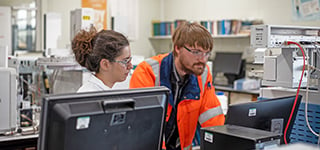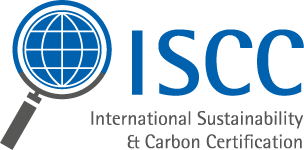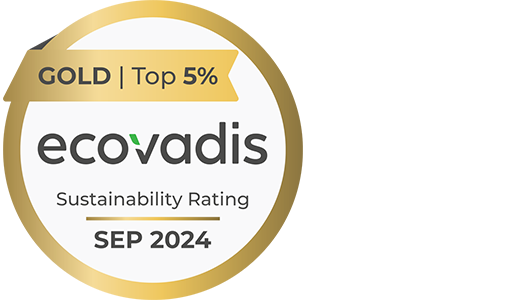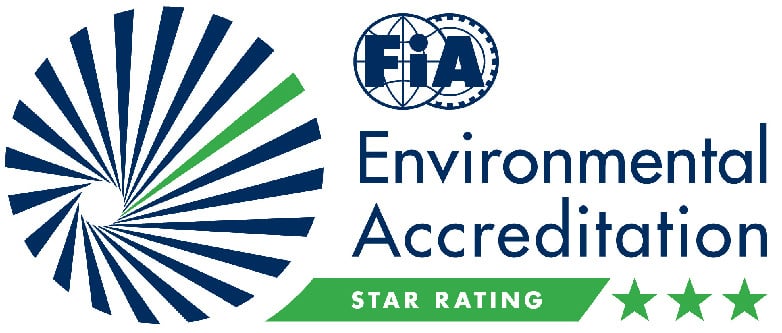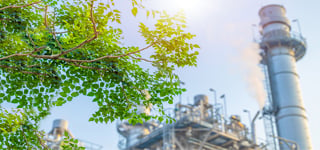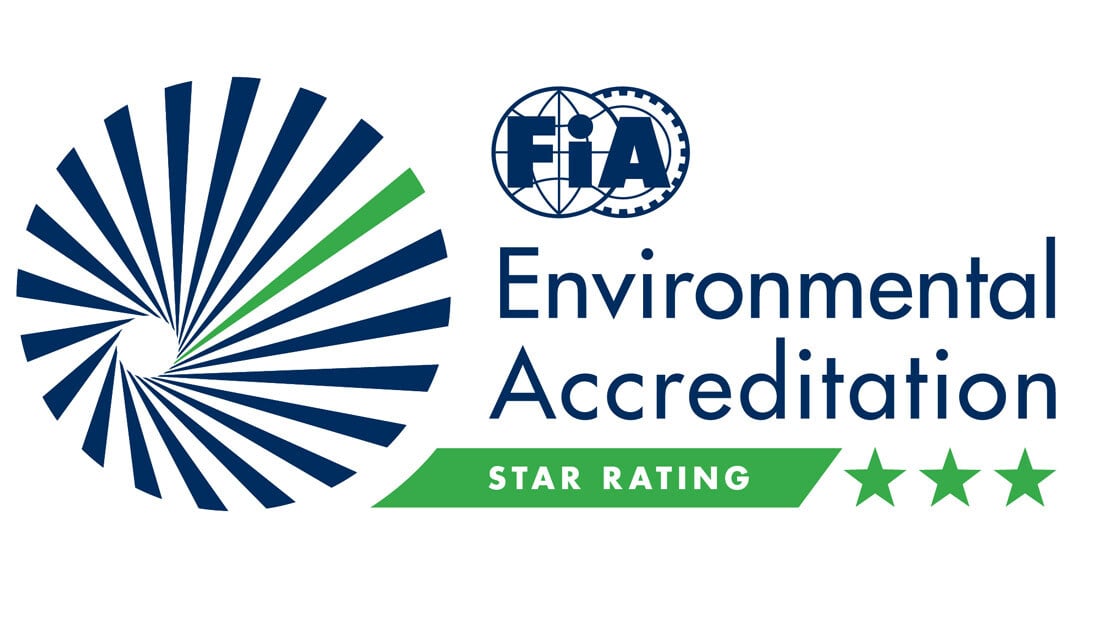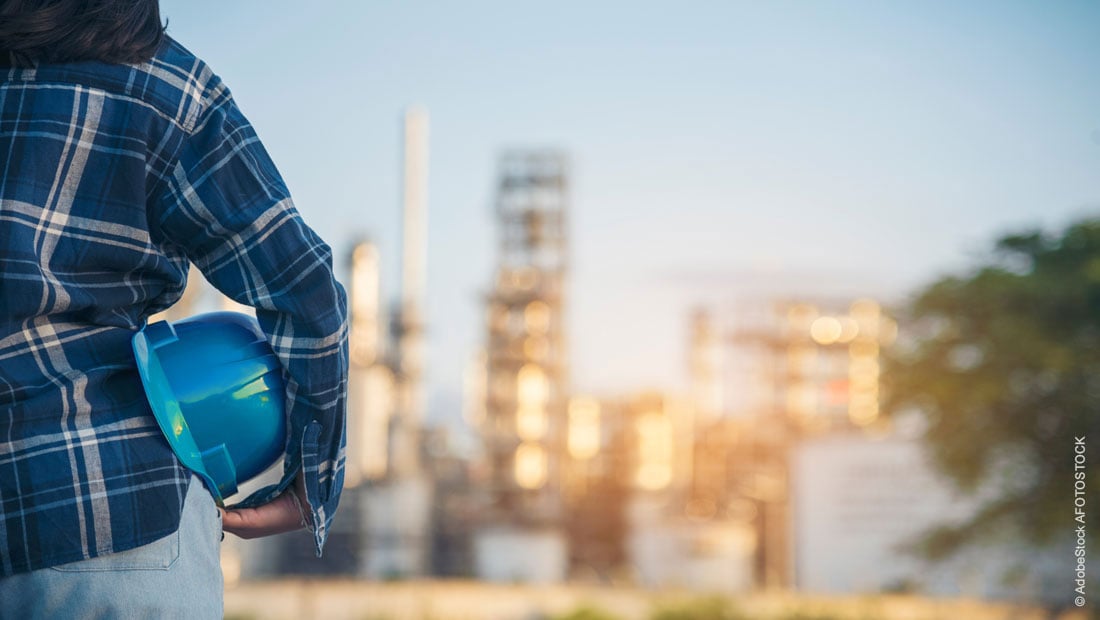
There are many certification schemes on the market with regards to sustainability. In order to be relevant and make a real difference in reducing CO2 emissions, companies need to have their systems tested - as comprehensively, transparently and independently as possible. The ISCC standard is a globally recognised certification system based on a circular economy. The following article gives an overview of the testing system, the legal requirements and which raw materials, products and industries are taken into account.
ISCC as globally recognised sustainability certification
The International Sustainability & Carbon Certification (ISCC) standard is a voluntary and globally recognised certification system based on the principles of a circular economy. It enables traceability throughout the supply chain and verification of specific environmental and social standards. With an ISCC certification, companies can demonstrate that they comply with independently audited strict protocols, procedures and processes within their supply chains.
Why is ISCC certification important?
ISCC strives for a world where biomass and other raw materials are produced in an environmentally, socially and economically sustainable manner. Reducing CO2 emissions is a responsibility of worldwide communities. Information about the sustainability criteria in the production, processing and raw materials of a product are increasingly important demands from customers and end consumers.
Companies therefore have a social responsibility not only to reduce CO2 emissions, but also to document the use of their raw materials in a verifiable manner and to communicate this transparently.
An important building block for this is ISCC certification, which independently verifies data and processes so results can be presented in a comprehensible and comparable way - this is becoming more and more important for companies and customers alike.
Advantages of ISCC certification at a glance:
- Transparency towards customers
- Traceability throughout the supply chain
- Proof of conformity with the (RED II) EU Directive (bioliquids)
- Clear documentation of all sustainability criteria
ISCC - the most recognised certification for sustainable biomass
With more than 50,000 certificates issued, the International Sustainability and Carbon Certification (ISCC) is by far the best known and most recognised certification system worldwide for various sustainable biomass and waste types.
The International Sustainability and Carbon Certification (ISCC) was developed as early as 2006 to establish an internationally aligned, viable and transparent system for the certification of biomass and bioenergy and to provide transparent evidence of greenhouse gas reductions. In the meantime, the ISCC has become one of the leading and independent standards and received recognition by the EU Commission in mid-2011 for a wide range of biomasses and biofuels worldwide.
In 2012, the ISCC EU certification system was supplemented by the ISCC PLUS certification.
What exactly does the ISCC system include?
The International Sustainability and Carbon Certification (ISCC) focuses on the reduction of greenhouse gases in the value chain, sustainable land use, the protection of natural habitats and the social sustainability of raw material production. The ISCC thus considers not only ecological, but also social and economic parameters and incorporates them into certification.
Stay informed with our Blog!Subscribe to our blog free of charge and benefit from regular information on sustainability, chemical purchasing, research & development and supply chain management: |
What are the differences in the ISCC certification systems?
Market participants and producers in the feed and food, packaging, chemical, pharmaceutical and plastics industries as well as the fuel and aviation industries can have their manufacturing processes and supply chains certified. The ISCC standard covers all sustainable raw materials, including agricultural and forestry biomass, biogenic waste, residues and recyclable materials.
Depending on the raw material or application, a distinction is made between different ISCC certifications:
1. ISCC EU Certification - Sustainability certification for biofuels
The basis for the ISCC EU is the EU regulation regarding the production and processing of biomass in the Renewable Energies Directive II (RED II / Directive (EU) 2018/2001). The ISCC EU certification covers the feedstocks and fuels mentioned in RED II, such as all types of agricultural and forestry biomass, biogenic wastes and residues, non-biological renewable energy and recycled carbon materials.
The certificate provides ...
- companies proof that their biomass, biomass products and biofuels are produced sustainably and responsibly - throughout the entire supply chain.
- proof of compliance with the EU Renewable Energy Directive (RED II), allowing access to this market for biomass/biofuel products.
2. ISCC PLUS Certification - Sustainability certification for biogenic and circular products
The ISCC PLUS standard is an extension of the existing certification system. The scope of application for ISCC PLUS is circular economy and bio-based products. Under ISCC PLUS, all types of agricultural and forestry raw materials, bio-wastes and residues, renewable raw materials and fossil materials that contribute to the circular economy and bio-economy can be certified.
The certificate provides ...
- proof that raw materials are of sustainable origin and includes mass-balanced products in addition to bio-based raw materials.
- companies using the mass balance approach that mass balancing is carried out according to predefined and transparent rules.
- calculation and transfer of CO2 emissions throughout the value chain.
3. ISCC Corsia Certification - Sustainability certification for Sustainable Aviation Fuel (SAF)
CORSIA, the Carbon Offsetting and Reduction Scheme for International Aviation, is an instrument for reducing emissions in the aviation industry. It was developed by the International Civil Aviation Organisation (ICAO) and describes, among other things, the requirements for CO2 offsetting in international flights and the calculation of emission reductions through the use of CORSIA-eligible fuels (ISCC CORSIA and ISCC CORSIA PLUS).
There are also other ISCC standards such as ISCC Solid Biomass NL (solid biomass for energy applications in the Netherlands), ISCC Japan FIT (renewable energy production in Japan) and the ISCC Non-GMO Food and Feed and ISCC Voluntary Add-ons modules.
Conclusion
ISCC certifications are important evidence to demonstrate emission reductions using consistent data management practices and traceability throughout the supply chain. In the field of bio-based energy, fuels and raw materials, the ISCC standard is a globally recognised and independent standard with a strict requirement profile and offers companies in their value chains the opportunity to share their verified CO2-reduction solutions.
Want to learn more about sustainablity in the chemcial industry?





